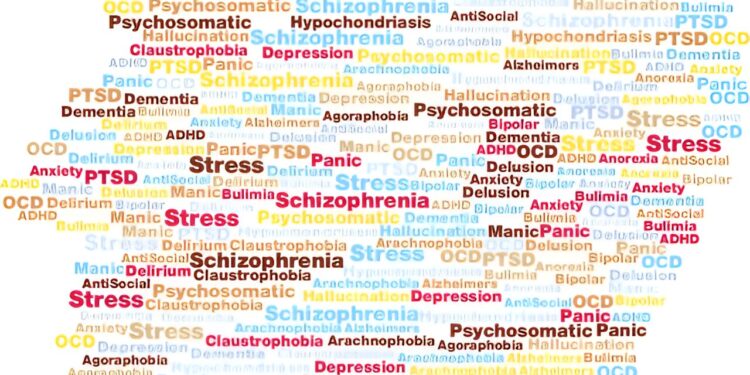Diagnostic labels have mixed benefits. Credit: Gordon Johnson
Diagnostic labels for people with what some consider relatively milder forms of mental illness can affect how others perceive them, for better or worse, according to a study published Aug. 28, 2024, in the open-access journal PLOS Mental Health by Nick Haslam of the University of Melbourne, Australia, and colleagues.
In recent years, there has been an increase in the number of diagnoses of mental disorders. Here, Haslam and colleagues explore the implications of diagnosing people with mild or marginal symptoms.
In this research, symptoms were rated as mild or marginal by members of the public, who rated different examples ranging in severity from clearly below to clearly above the diagnostic threshold as determined by a scale in a previous study.
Haslam and his colleagues provided research participants (who were American adults recruited from an online platform) with short vignettes describing people with mild or marginal symptoms of different mental illnesses.
In Study 1, 261 participants received three labeled (“This person has a diagnosis of ___”) or unlabeled vignettes describing people with symptoms of major depressive disorder (MDD), bipolar disorder (BD), or generalized anxiety disorder (GAD).
A total of 684 participants in Study 2 were presented with a labeled or unlabeled vignette describing a person with posttraumatic stress disorder (PTSD), obsessive-compulsive disorder (OCD), or binge eating disorder (BED).
Participants were asked about their empathy for the person described, their support by offering accommodations (e.g., “This person’s employer should not hesitate to offer extra time to complete work-related tasks”), their readiness to engage in mental health treatment, the persistence of their difficulties (e.g., “This person is likely to fully recover from their problems”), and their identity (e.g., “This person’s problems are an important part of who they are” (Study 2 only)).
In Study 1, labeled individuals tended to elicit more empathy and be viewed as more amenable to treatment compared to unlabeled individuals, but they were also thought to have more persistent problems.
Study 2 differs from Study 1 in that there is no significant difference in empathy for labeled and unlabeled people, but it also found that labeled people were rated as having less ability to cope with their problems. Participants’ ratings varied considerably depending on the disorder described, with major depressive disorder and post-traumatic stress disorder eliciting particularly high empathy and coping support.
The results suggest that broad diagnostic concepts that include relatively mild symptoms may promote help-seeking, empathy, and support, but also undermine perceptions of agency and expectations that problems can be overcome.
It is important to keep in mind that the severity of symptoms in people with the conditions discussed in this study may change over time, and that the term “mild” is subjective. Furthermore, the choice to obtain or choose a diagnosis is personal and varies across individuals, conditions, and communities.
The authors add: “Applying diagnostic labels to relatively mild forms of distress has mixed benefits. Our research shows that it can increase empathy and support for the person, but also make their problems seem out of their control and more difficult to overcome.”
More information:
Effects of diagnostic labels on perceptions of marginal cases of poor mental health, PLOS Mental Health (2024). DOI: 10.1371/journal.pmen.0000096
Provided by the Public Library of Science
Quote:People with mild mental illness may be perceived differently depending on the presence of diagnostic labels (2024, August 28) retrieved August 28, 2024 from
This document is subject to copyright. Apart from any fair dealing for the purpose of private study or research, no part may be reproduced without written permission. The content is provided for informational purposes only.



